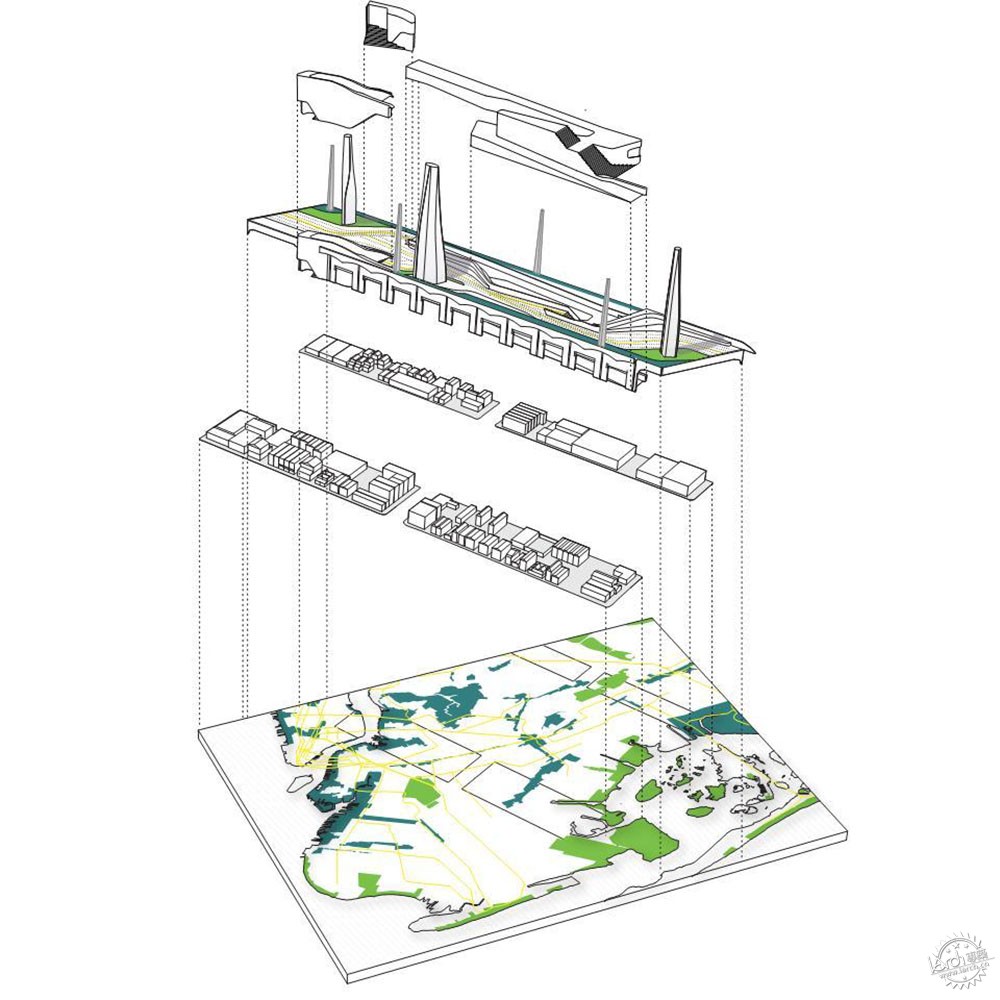
建筑故事叙述的可视化工具
Visualizations as an Architectural Storytelling Tool
由专筑网邢子,小R编译
当听到“可视化”一词时,人们可能想象出酷炫的渲染图,其中有灯光、人物、令人眼花乱的外观以及各种氛围的表达,除了提供三维空间外,建筑师还需要发展他们在表达无形思想方面的技能,从而更好地表达设计思路。建筑师不仅是设计了按线性顺序呈现的一次性概念,更是需要设计一个故事,并像论文一样具有逻辑,例如建筑师的表达是否具有揭示项目优先级的能力。
When we hear the term visualization, it’s likely that we picture a flashy render full of lights, people, dazzling finishes, and a sense of energy about the place that we are viewing. Aside from rendering a three-dimensional space, architects also need to develop their skills in the representation of intangible ideas that help drive the narrative behind their arguments. Instead of creating one-off concepts that are presented in a traditionally linear sequence, designers need to craft a story, structure their designs like a thesis, and consider how our presentations have the power to reveal the priorities of a project.
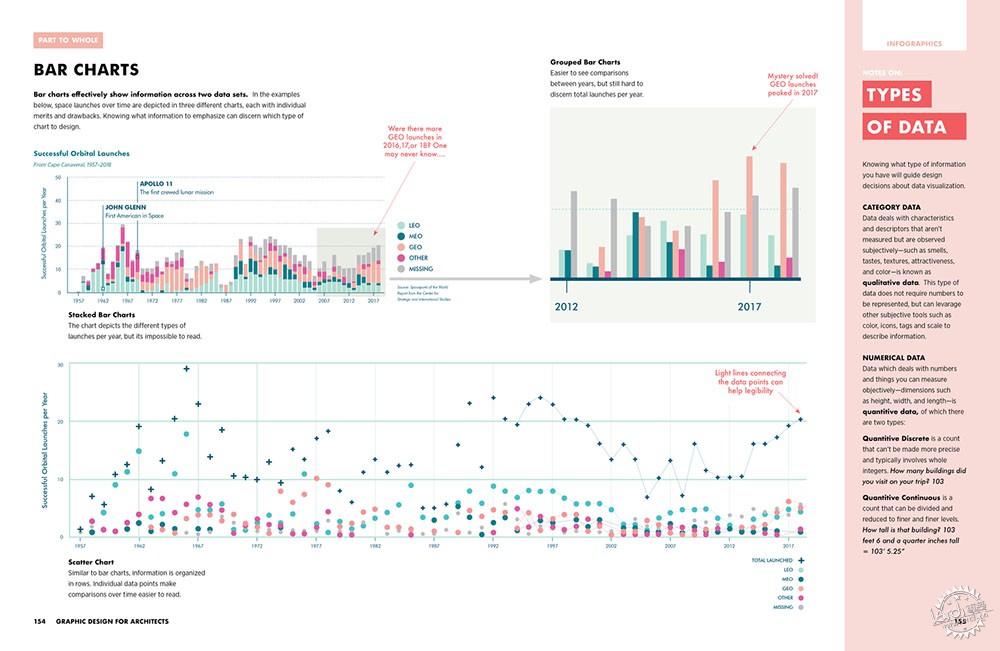
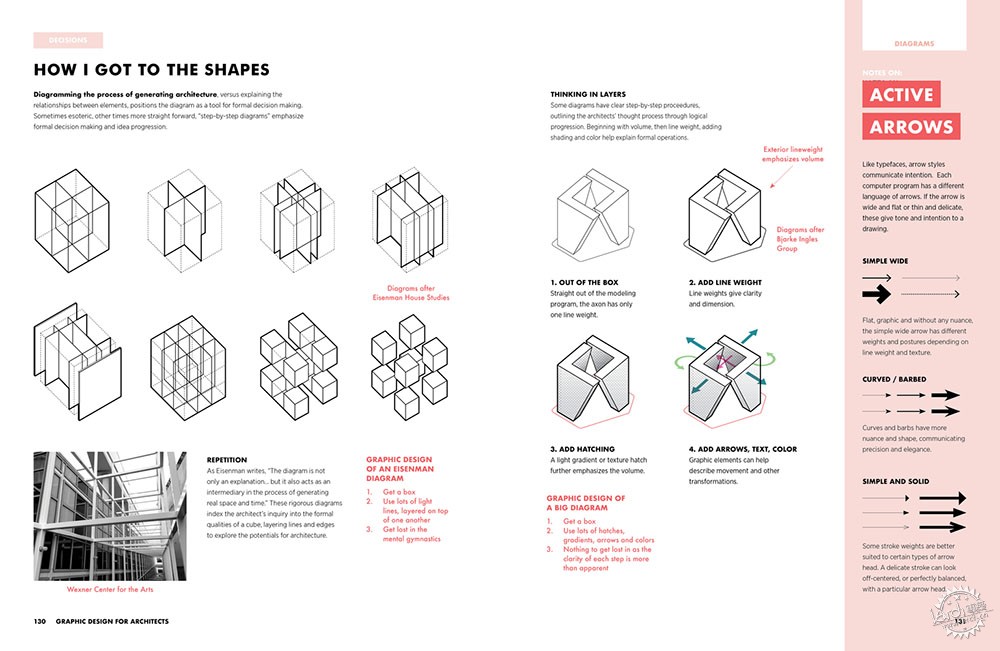
空间可视化只是用于构建视觉的工具,但是图表、数据分析、文本、颜色和布局与事物本身的文字图像一样重要。俄亥俄州立大学诺尔顿学院建筑学副教授Karen Lewis是一位专家,致力于探索建筑师如何通过各种图解和基于数据的表示形式来构件方案。在她的第一版《建筑师的图形设计》(Routledge,2015年)中,她提供了深入的技巧和窍门,帮助建筑师提高图形设计技能,并发展有力的论据来表达其设计意图。她认为,建筑师不仅要向专业人士传达他们的想法,而且还要向有兴趣听取意见、以及具有影响力的人们传播思维。
Spatial visualizations are just one of several tools that are used to craft a vision, but diagrams, data analysis, text, colors, and layout, are all just as important as the semi-literal imagery of the thing itself. Karen Lewis, Associate Professor of Architecture at The Knowlton School at Ohio State University is a subject matter expert in exploring how architects frame arguments through a variety of diagrammatic and data-based representations. In the first edition of her book, Graphic Design for Architects (Routledge, 2015), she provides in-depth tips and tricks for how architects can sharpen their graphic design skills and develop powerful arguments to express their design intent. Her work focuses heavily on the ways that architects convey their ideas not only to others in the profession but also the outward projection to the rest of the world interested in hearing what architecture has to say and the power for change that it can bring.
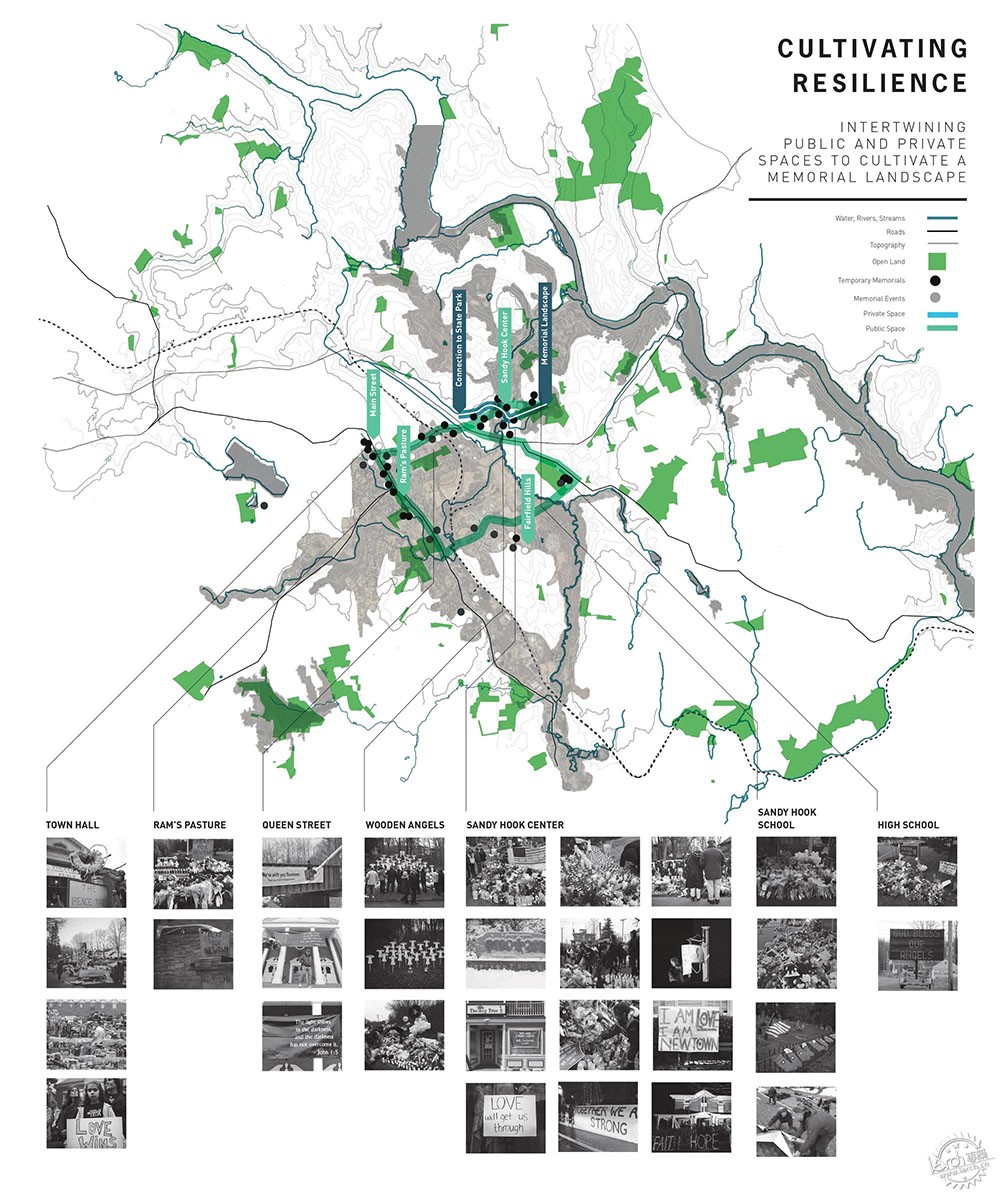
当被问及她认为该行业是否正在远离图形表达的趋势时,Lewis评论说,数据可视化和综合似乎没有以前那么流行,这可能是由于它很快将变得无处不在。“曾经有一段时间,人们为了简化信息做了很多努力,但后来我们过于要求简洁,这对设计而言是没有帮助的。我们现在看到的是对复杂性的呼吁,但是我们需要找到一种方法来阐述而不是简化困难。尤其是考虑到当前的世界状况,信息和参与至关重要。” Lewis还回顾了星巴克在美国2008年总统大选之前向客户推销的政治广告。“当时,我们的咖啡带有政治信息,这也许是一个很讨人喜欢的想法,但是现在,由于日常生活中对数据的过度消费,人们转向使用数字统计来代替某些东西,这比之前更复杂。”Lewis补充说。
随着设计趋势和喜好的不断改变,我们通过产品组合表达想法的方式也经历了变化。一度流行的印刷手册被换成数字形式,例如个人Instagram和网站。作品集的内容也在不断发展,其内容已不再是简单展示Revit或AutoCAD技巧了,更多是表明绘制空间的进阶技巧,并且知道其背后所代表的含义。
When asked about what trends in graphic representation she felt the profession was moving away from, Lewis commented that data visualization and the synthesis seems to be less popular than it once was, likely due to how ubiquitous it quickly became. “There was a time when the move was to simplify the information, but now we’ve swung to the far right of simplicity, that it’s become hurtful to the argument. What we see now is a call for complexity, but that we need to find a way to clarify, rather than simplify, difficult subjects. Especially given the current state of the world, information and the power to engage is so critical.” Lewis also recalled the political ads that Starbucks pushed towards their customers leading up to the United States 2008 Presidential Election. “At the time, it was an almost endearing idea that our coffee came with a side of political information, but now with the overconsumption of data that occurs in our daily lives, people are steering clear of the representation of numerical statistics in favor of something more complex,” adds Lewis.
As design trends and movements come and go, the way that we represent our ideas through portfolios has also experienced change as well. The once-popular hard copies of printed booklets are being swapped out for digital forms of representation, such as personal Instagram feeds and websites. The content of portfolios is also ever-evolving, and the intent has shifted away from showing that the author knows Revit or AutoCAD, and more about that they have developed the skill to draw in space, and know the implications of what every single line represents.
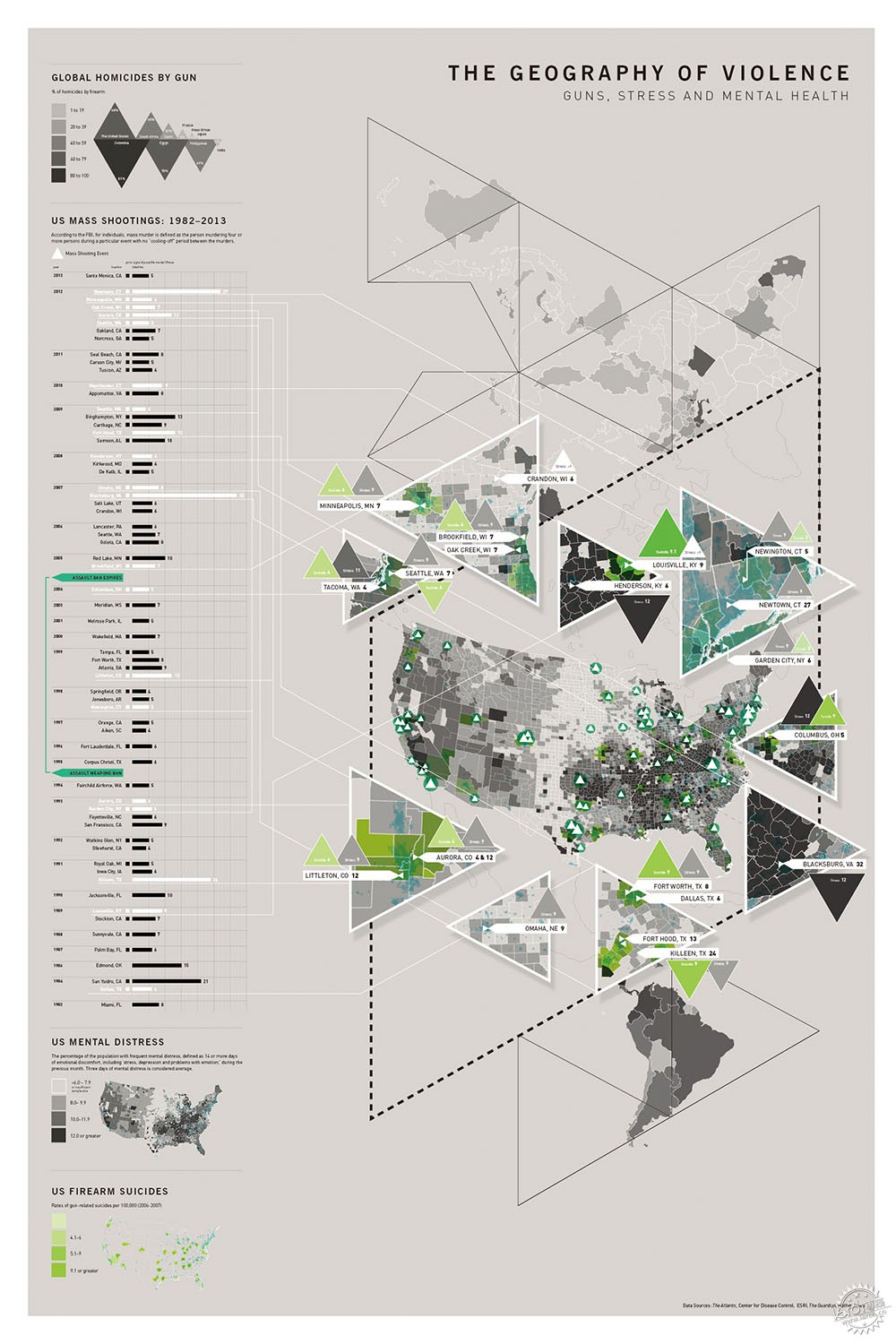
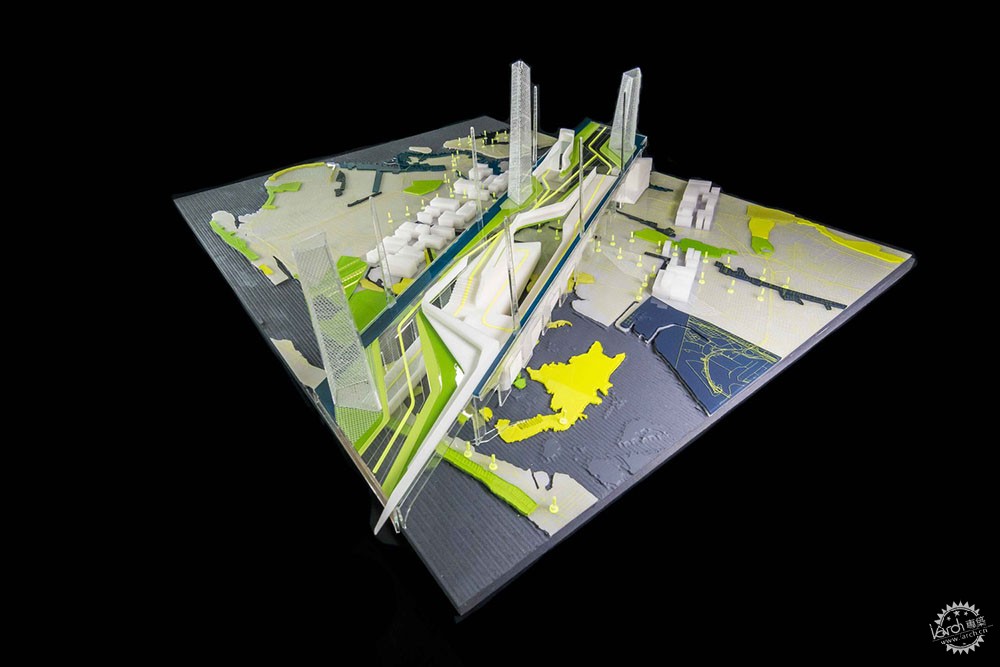
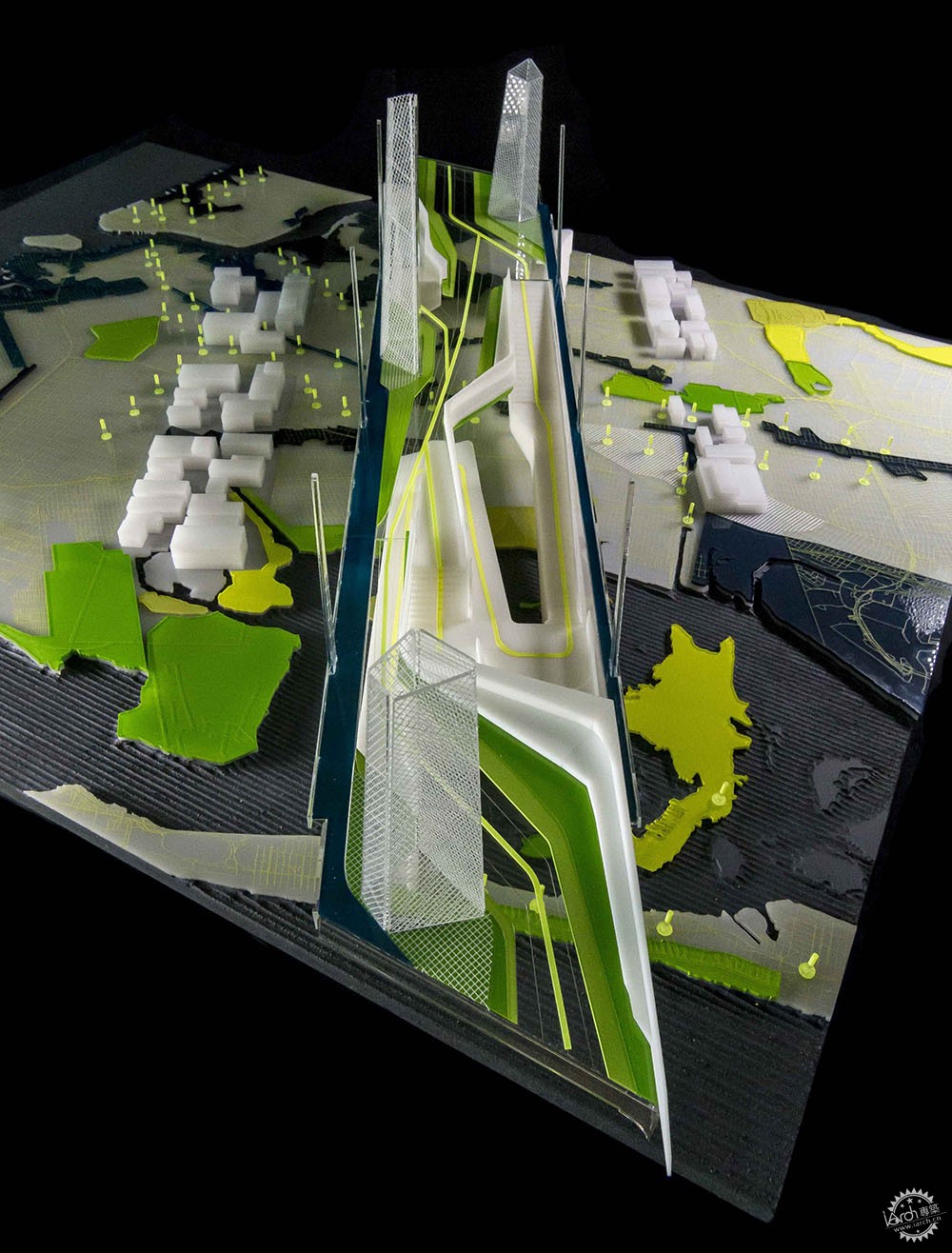
模型的未来也受到模拟和数字表示形式的巨大影响。随着3D打印机、激光切割机和大幅面CNC机器的发展,模型将紧随其后,不再只是文字表达,更多的是图解工具。模型不仅能够以最小的比例向我们展示更多信息,而且能够超越设计展示的工具界限。
Lewis还为建筑师在设计故事思路时提供了几个主要方向。首先,要考虑受众,考虑一下需要显示哪些信息,来表达你的观点;其次,要表现自己,将自己的个性注入到自己的表现中,并为分享的内容感到自豪,可以将其他设师的作品作为自己的灵感来源,但要确保作品符合自己的兴趣并代表自己的声音。Lewis举例说,她的个人灵感来自多种颜色和字体。最后,扔掉将相似图形组合在一起的想法,更应该考虑叙述的结构。主题通常需要不止一种类型的绘图来进行论证,所以就算觉得有些混乱也可以尝试将一些内容混合剪接。
The future of the physical model is also under the heavy influence of our analog and digital representations as well. With the advancement of 3D printers, laser cutters, and large format CNC machines, the physical model will follow suit and become less of a literal representation, and more of a diagrammatic tool. Models have the ability to show us much more than just the form at a minimized scale, and can push the boundary of showing the performative aspects of design work.
Lewis also offered three main pointers for designers to consider when crafting their stories. First, begin with the audience in mind. Think about what information needs to be shown so that you are the one shaping the argument. Second, it’s important to represent yourself, inject a bit of your personality into your representations, and be proud of what you’re sharing. It’s great to use other designers for inspiration, but make sure that your work speaks to your interest and represents your voice. Lewis noted that her personal inspiration comes from a variety of colors and typefaces. Last, lose the idea of grouping similar drawings together, and instead think about the structure of the narrative. Arguments usually need more than one type of drawing to make a case, so don’t hesitate to mix things up even if it initially feels out of order.
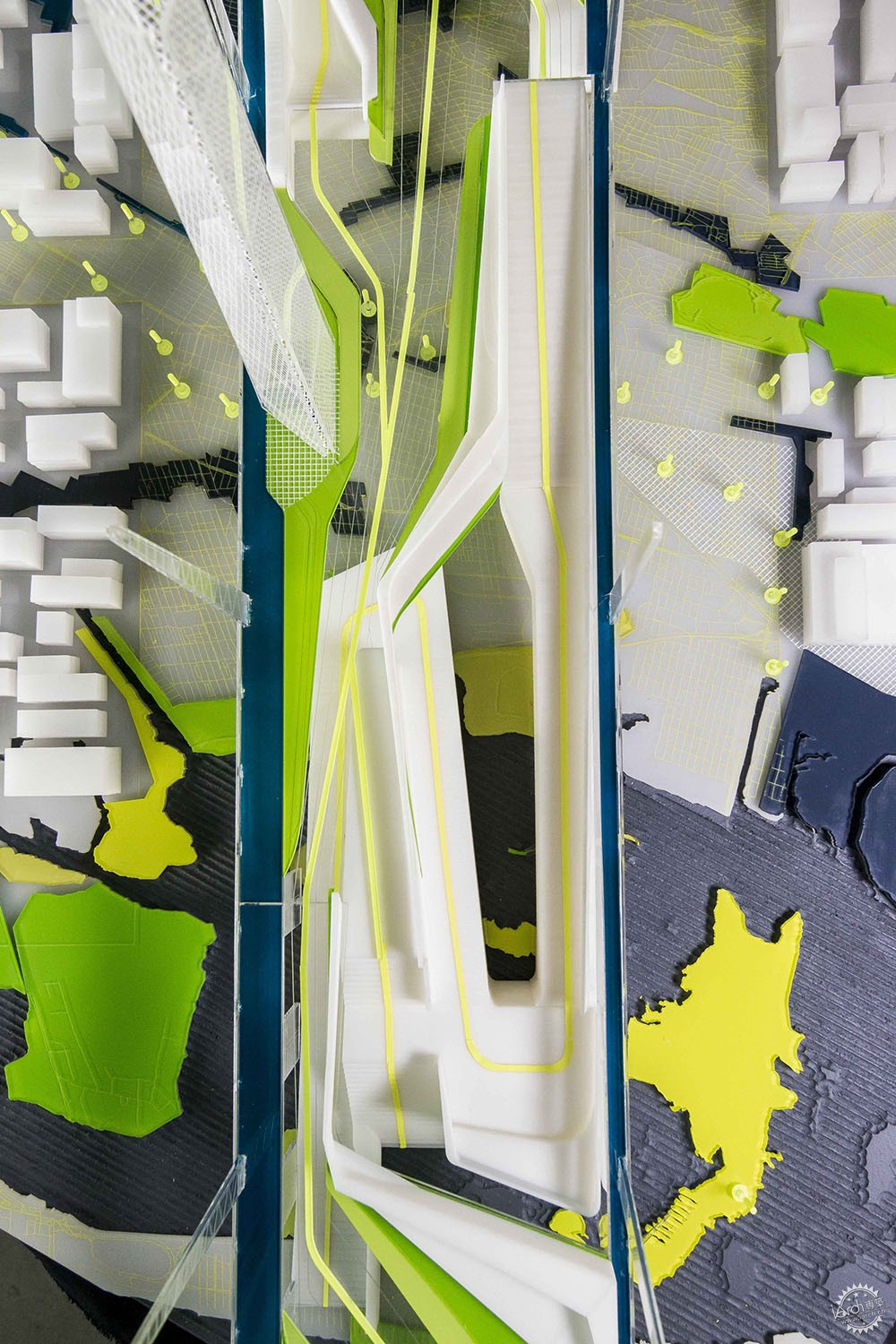

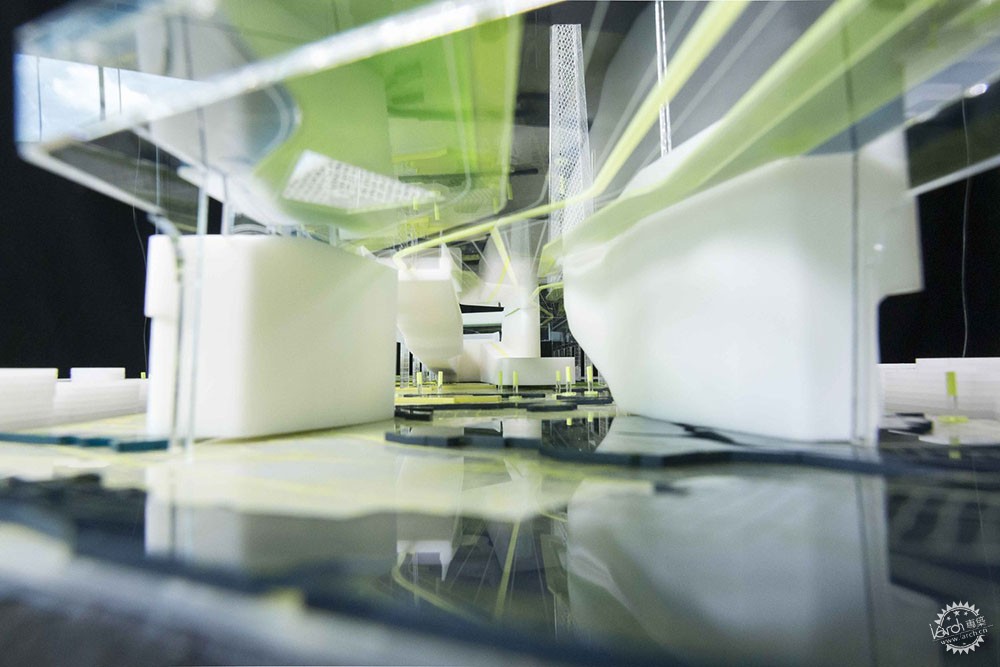
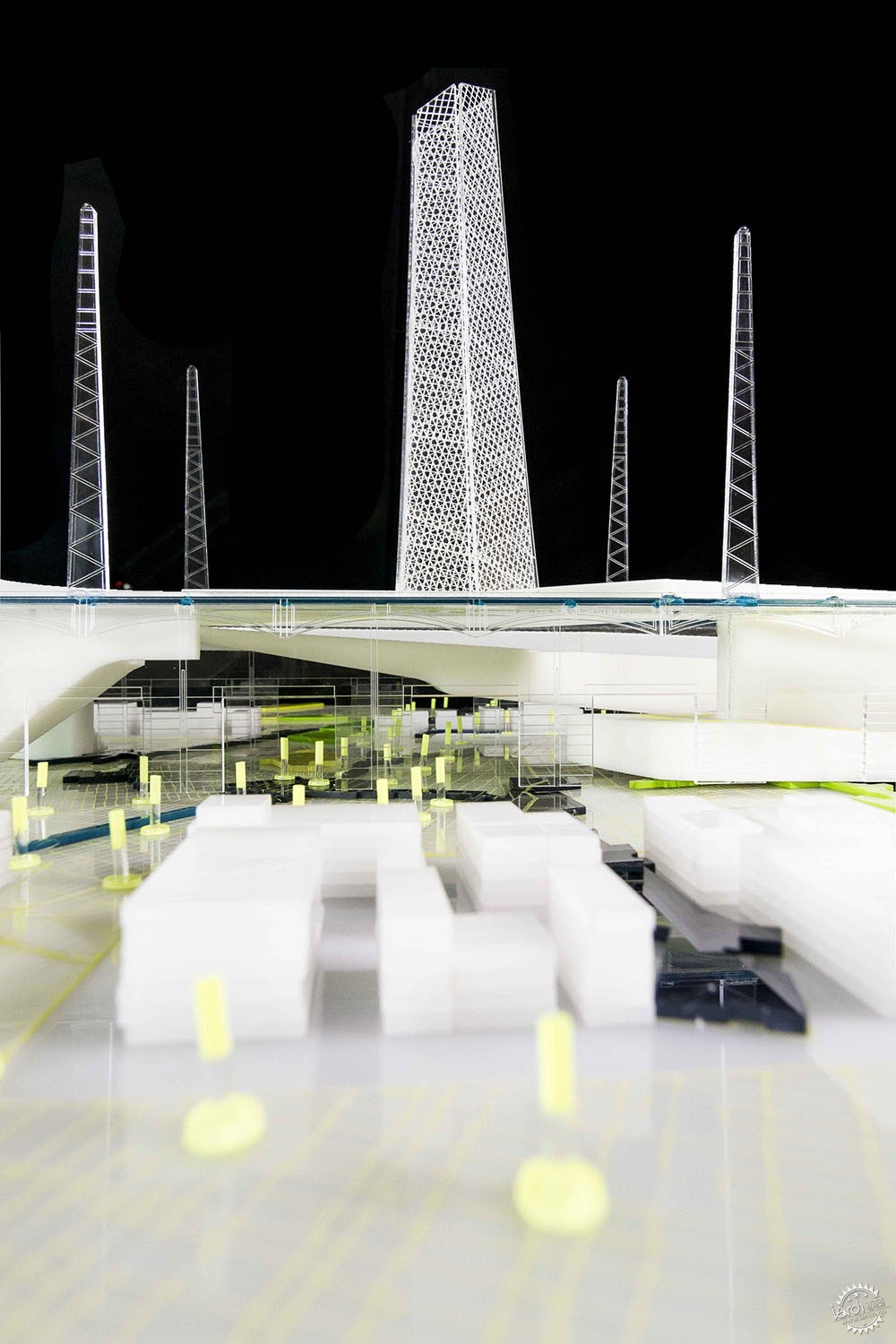
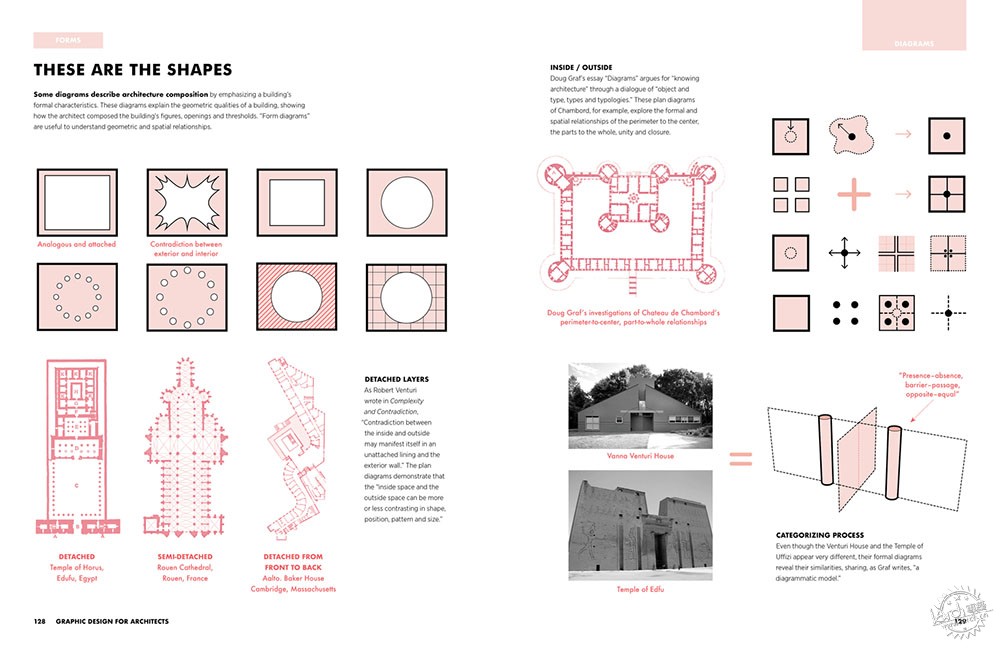
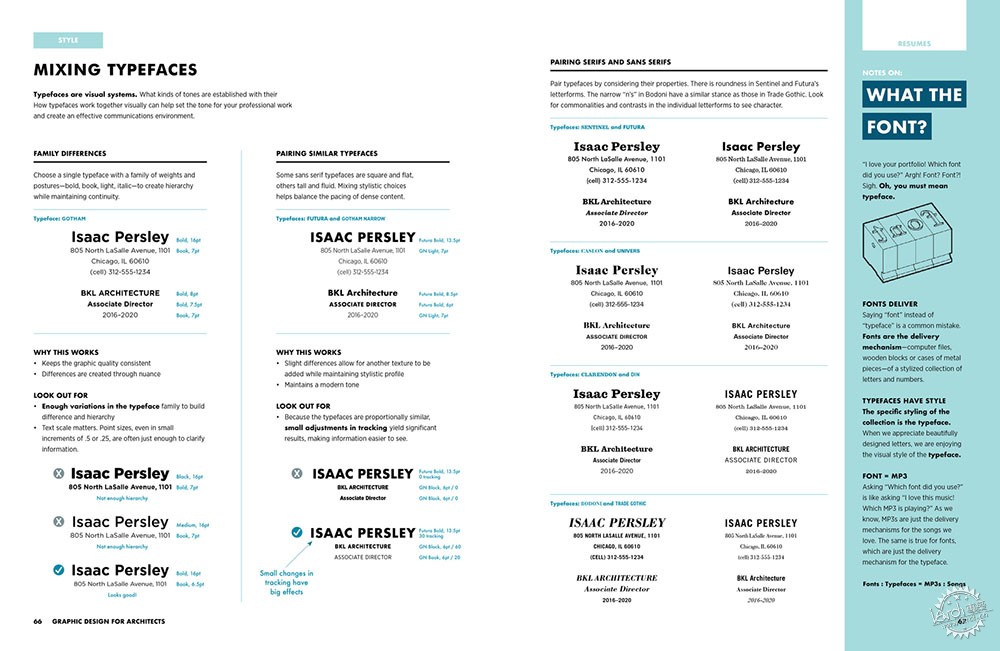
|
|
